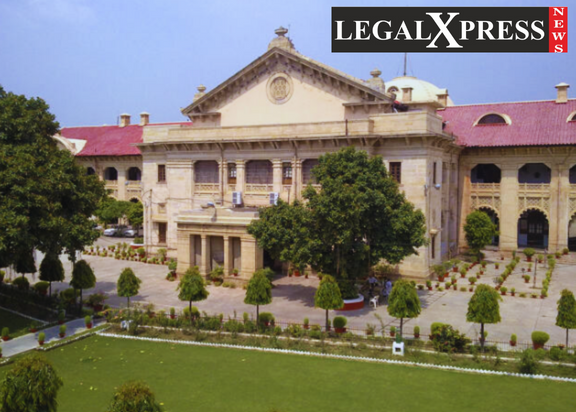 ALLAHABAD HC DENIES BAIL TO JUVENILE ACCUSED ON GROUND THAT RELEASE IS LIKELY TO DEFEAT ENDS OF JUSTICE
ALLAHABAD HC DENIES BAIL TO JUVENILE ACCUSED ON GROUND THAT RELEASE IS LIKELY TO DEFEAT ENDS OF JUSTICE
|
On October 21, 2022, the Allahabad High Court dismissed a criminal revision petition, filed under Section 102 of the Juvenile Justice (Care and Protection) Act, 2015 (JJ Act).
Justice Jyotsna Sharma declined bail to the juvenile delinquent who committed rape and was subsequently charged under sections 376AB of the Indian Penal Code, 1860 and Section-5M/6 of the Protection of Children from Sexual Offences Act, 2012. The incident took place in the district of Mainpuri, Uttar Pradesh. The victim’s mother alleged that the accused (aged about 15 years) enticed her 6-year-old daughter in a well-planned manner by offering sweets, and later, raping her. The council for revisionists, Satendra Singh, challenged the order passed by the Juvenile Justice Board (which was later even affirmed by the POCSO Special Judge) because the denial of bail was arbitrary, unjust, and passed against the mandate of Section 12(1) of the JJ Act, which lays down three exceptions in which bail can be refused to a juvenile:
(1) if the release is likely to bring the juvenile into contact with any known criminal, or
(2) expose the juvenile to moral, physical, or psychological danger, or
(3) the juvenile’s release would defeat the ends of justice.
However, the court observed that bail is not always a rule in juvenile cases, and this decision to grant bail to the accused is based on the discretion of the court. Based on the nature of the crime committed, the facts of the case, and the evidence available, bail can be denied if it defeats the "ends of justice" and proves to be a detriment to society at large. Keeping in mind the general principles as enumerated in Section 3 of the JJ Act, the court looked at this case from three angles, namely,
the angle of welfare and best interests of the juvenile delinquent;
the demands of justice for the victim and her family; and
the concerns of society at large.
Seeing the gravity of the heinous offence committed by a boy who was found to be about 12 years and 10 months in the age determination inquiry, the District Probation Officer suggested that the boy requires strict control and supervision. According to the JJ Act, juvenile delinquents committing heinous offences should be dealt with more severely. Since in the case at hand, the juvenile was a first-time offender with no prior criminal history, the state must extend reformatory services to him to bring him back to mainstream society as a person of sound mind.
In the current scenario, two important principles are gaining ground regarding juvenile bail, namely, ‘mental age’ and ‘capacity of mind’. Due to the advancement in society, the courts are increasingly recognising the mental age of a child rather than his or her biological age. This is very subjective as it depends upon individual circumstances. However, the mental age doctrine acknowledges the capacity of the mind to form an intention, which is essential in the case of criminal liability. Hence, even the JJ Act reduced the age of criminality from 18 years to 16 years in case of heinous crimes. Furthermore, Section 18, JJ Act, 2015 mentions the mental and physical capacity of a child to commit the offence, his/her ability to understand the consequence of the crime and the circumstances (e.g., hormonal changes, economically weaker sections) under which the said offence was allegedly committed.
Thus, taking a holistic view, the court depended on its robust sense of justice and refused to grant bail to the juvenile. At the same time, it directed the Juvenile Justice Board to expedite the hearing and conclude the same at the earliest. [Refer to the Judgment for more details: X v. State of UP, Criminal Revision No.-1036 of 2022, decided on 21-10-2022]
Tags : #Highcourt #Allahabad #juvenile #bail #Posco #Specialcourt #fasterjudiciary #JuvenileJusticeAct #IPC
Copyright A unit of White Code Global Consulting Pvt Ltd. All rights reserved. Unless otherwise indicated, all materials on these pages are copyrighted by A unit of White Code Global Consulting Pvt Ltd. All rights reserved. No part of these pages, either text or image may be used for any purpose. By continuing past this page, you agree to our Terms of Service, Cookie Policy, Privacy Policy and Content Policies.